
How much does it cost to replace a windscreen?
This used to be a simple question since most car windscreens were made from the...
Browse over 9,000 car reviews
.jpg)
Q: What is the best value car in Australia?
A: Deciding on the best value car in Australia is not a straightforward task. Among other things, it depends on A: How an individual buyer values different elements, and: B: What properties and skill-sets are most important to a particular type of car.
Clearly, if the best value-for-money car was based simply on price, then the cheapest car would win. That’s not how this stuff works.
Taking all that one step further, a supercar at a bargain price might seem cheap, but if it doesn’t deliver supercar performance, it can’t be considered a bargain. At any price.
Similarly, an urban runabout might be thousands of dollars cheaper than its budget cars competition, but if it consumes fuel like a B-Double, again, it can never be considered good value.
Car value Australia wide has always been pretty good, but now that we’ve stopped making cars here, that formula has changed a little as the playing field has levelled.
But let’s not forget that our local cars were designed to work and, therefore, be good value here, so the question of which car is best in Australia now lacks that homegrown element. And that just tightens things up even more on the value front.
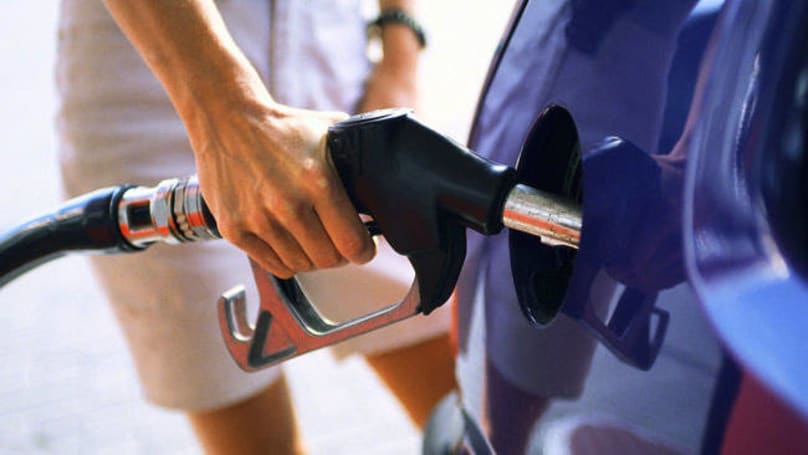
And as for how different people view different parts of a car’s performance, or prestige, or appearance, or equipment, well, that’s anybody’s guess.
All of which is another way of saying that value-for-money is, at best, in the eye of the beholder. And that’s before we even get to vexed topics such as the best car resale value.
The market value of cars as second-hand buys will clearly leave a mark on their original value-for-money proposition, but who knows what that will ultimately be.
And what about reliability? Again, we have to go pretty soft on this one, because there’s simply not the market intelligence available on new models to make any sort of definitive statements.
Sure, the most reliable used car brands are well known and can be taken into account, but until a particular car has seen its share of action, reliability is a big unknown.
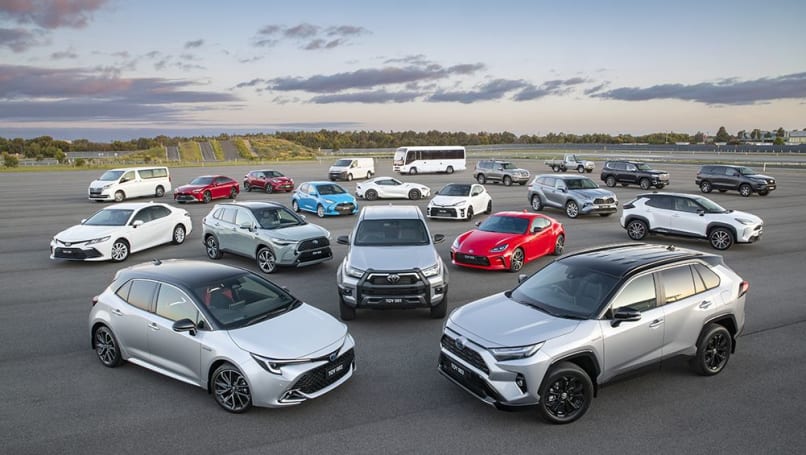
The same goes for the cheapest cars to maintain. Fixed price servicing is one thing, but if the car ultimately proves a costly thing to own, its value-for-money suffers. Unfortunately, this is something we also don’t know when a car is a new model.
That said, there are still some standout makes and models that offer plenty for the money. And the best of those are, of course, the ones that cash in on the expectations for that type of car.
So, here’s our magnificent seven; the seven cars we reckon represent the best new car value-for-money right now.
Some of them are outright bargains, others are budget beaters in their category.
Either way, not everybody will agree with our choices, but, again, that’s what happens when you try to put a whole bunch of criteria and sensibilities under one umbrella.
Make and model: Toyota Camry Ascent Hybrid
Price: $33,490
Why it made the list: Stunning value for a Lexus-spec driving experience. It mightn’t look too different from any other Camry, but the hybrid version is capable of slashing fuel use around town.
But somehow, Toyota has also stumbled on to a combination of ride comfort, smoothness and build quality that puts the Camry way ahead of the pack, even if price wasn’t such a consideration.
Not to mention that hybrid driveline that makes the Camry one of the most fuel efficient cars of its size in the real world. Not only that, this one is possibly the best value new car Australia has to offer.
One drive of the Camry Hybrid, and the only question you’ll have left is how on earth they can sell it for the price. Even on a drive-away basis, the Ascent Hybrid will still leave you change from $40,000.
Who should buy it: Lots of people who are otherwise buying more expensive, less accommodating SUVs.
Make and model: Chevrolet Corvette Stingray 2LT
Price: $170,000
Why it made the list: Supercar looks and feel for a fraction of the price of the established supercar brands. Okay, so the pushrod engine is hardly high-tech and a true supercar will best the Chevy in some dynamic respects, but overall, it’s a huge chunk of performance car for the money. And, hey, just look at it.
Corvettes haven’t always been great cars in terms of build quality, and to be fair, the new Stingray also seems a bit sketchy in the areas of ergonomics and cabin layout. But it would hardly be the first supercar to earn that sort of criticism. The dual-clutch transmission also requires some familiarisation.
Who should buy it: Anybody who values high performance but also needs a car that can be used every day without fear of it breaking.
Make and model: SsangYong Musso XLV
Price: $36,450
Why it made the list: Roughly half the price of the competition but not compromised in useability or practicality terms. Quality is good and the South Korean built SsangYong (rightly or wrongly) doesn’t suffer the cringe of the Chinese opposition.
Our only caveat would be that the 2.2-litre turbo-diesel engine, while adequate for most jobs, does start to feel a bit underdone when you hook a heavy trailer and load to it.
Who should buy it: Anybody who needs a dual-cab ute and a decent length tray, and intends to use it as nature intended, rather than as a weekend getaway machine.
Make and model: Nissan Patrol Y62
Price: $82,160
Why it made the list: Although it lacks the turbo-diesel engine of the vast majority of its competition, the Patrol makes extremely good use of a 5.6-litre petrol V8 engine and a smooth seven-speed automatic transmission.
Although it will use more fuel than a diesel equivalent, it’s perhaps not as bad as you might imagine thanks to that sophisticated transmission. Nissan has carefully taken all the rough edges off the Patrol in the last decade, and the result is a truly resolved machine.
The car’s real long-suit, however, is that it’s a supremely capable off-roader that can also tow a huge trailers, yet undercuts its main rival by thousands of dollars. Enough, in fact, to equip the Nissan with a host of expensive accessories aimed at making life off-road easier, and still have it cost less than the opposition.
Who should buy it: Serious off-roaders who understand that fuel costs are just one part of owning a four-wheel drive.
Make and model: GWM Ora
Price: From $43,990
Why it made the list: A funky, groovy package that will definitely appeal to its target audience. While there are plenty of small hatchbacks around for under $30,000, none of them are purely electric.
Which means you’ll be spending $40-$50K for an EV in this market segment. That may change a little as the competition ramps up (which is already happening) but for now, the Ora represents the best you’ll do under $45,000.
The interior is avante garde and the overall styling has fashionista written all over it. Thankfully, it’s pretty good to drive, too. In fact, forget what you think you know about Chinese cars, because this latest wave has many of the answers to the usual questions.
Who should buy it: Anybody who wants an urban car and understands that EVs are here to stay.
Make and model: Kia Picanto GT Turbo
Price: $20,790
Why it made the list: Economy cars are, by definition about value for money. But some are still better cars than others. The Kia buys into the classic hot-hatch formula in a great package with a sharp price-tag. As hot-hatches have moved ever upmarket in terms of their standard equipment, power outputs and kerb mass, it’s nice to see Kia is flying the traditional flag with the tiny Picanto GT Turbo.
The GT has one of the most communicative steering and front ends around and the three-cylinder turbocharged engine makes 74kW and is huge fun in the process. The transmission has just five gears, but it’s a proper manual and the car is the better for it.
Who should buy it: Somebody who enjoys a proper hot-hatch feel in a super compact package.
Make and model: Audi S3
Price: $71,800
Why it made the list: Yes, we know it looks expensive, but add up the safety, convenience and the allure of the Audi Quattro badge and plenty of folks can see the point.
Meantime, this is a case of the less powerful version of a car actually representing better value than its faster stablemate. In the case of the Audi S3, that’s because it’s actually a sweeter car than its mad RS3 brother.
While the RS3 boasts five cylinders and 294kW for slingshot performance, the S3 still manages 224kW from its smaller 2.0-litre, four-cylinder engine.
So the latter is still a rapid car. But beyond that, the S3 is just a sweeter package with a more progressive power delivery and as much performance as you’ll ever need.
And that means even though the S3 is a better car in some respects than the RS3, it’s a full $20,000 cheaper to buy. And that’s got to be value.
Who should buy it: Someone looking for a well rounded prestige package that could still use $20K for other things.

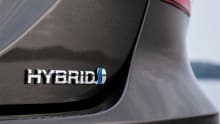

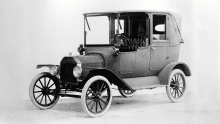
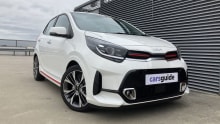

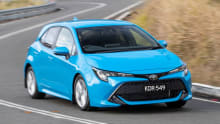
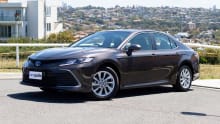


Comments